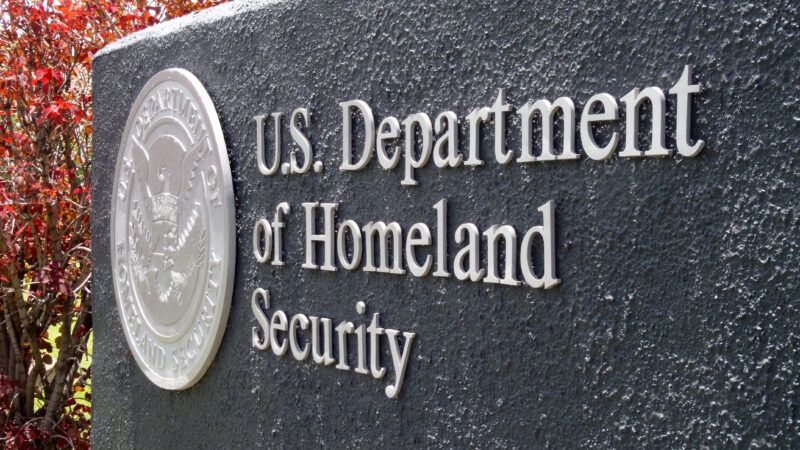ICE Operates a Sweeping 'Dragnet Surveillance System,' New Report Finds
ICE has spent $2.8 billion since 2008 developing surveillance and facial-recognition capabilities, mostly in secrecy and without real oversight.

U.S. Immigrations and Customs Enforcement has quietly built up a massive "dragnet surveillance system" that allows it to snoop without a warrant on "nearly anyone, seemingly at any time," a new study reports.
The Center on Privacy & Technology at Georgetown Law released a report on Tuesday, "American Dragnet: Data-Driven Deportation in the 21st Century," detailing how ICE has slurped up massive amounts of data from state DMVs, utility records, private data brokers, and facial recognition software, often without a warrant or any meaningful oversight.
"ICE has built its dragnet surveillance system by crossing legal and ethical lines, leveraging the trust that people place in state agencies and essential service providers, and exploiting the vulnerability of people who volunteer their information to reunite with their families," the report says. "Despite the incredible scope and evident civil rights implications of ICE's surveillance practices, the agency has managed to shroud those practices in near-total secrecy, evading enforcement of even the handful of laws and policies that could be invoked to impose limitations."
The report details how ICE began rapidly expanding its surveillance capabilities in the waning days of the George W. Bush administration. Since 2008, ICE has spent $2.8 billion on facial recognition software and other new surveillance technology. Just last week, federal contracting records showed ICE intends to spend $7.2 million on yet more facial recognition tools.
Among the report's major findings: ICE has scanned the driver's license photos roughly a third of adults using facial recognition technology. ICE has access to the driver's license data of 3 in 4 adults, can track the movements of drivers in cities that are home to 3 in 4 adults, and can locate 3 in 4 adults through their utility records.
In 2020, the Washington Post reported that ICE had run facial recognition searches on millions of driver's license photos in Maryland, where undocumented immigrants are allowed to apply for licenses, without approval from the state or courts.
"When undocumented drivers apply for licenses, they place a significant amount of trust in the state that their information will not be used against them," the Center on Privacy & Technology report says. "Allowing ICE to use driver records for immigration enforcement purposes is a profound betrayal of that trust."
ICE has also evaded states' efforts to cut off its data-mining abilities. For example, the report found that after the state of Washington cut off ICE's access to its driver database, Department of Homeland Security (DHS) searches of a non-state-operated driver database nearly doubled.
Likewise, although the Oregon legislature banned state data disclosures to ICE, the agency can still access the information through two data brokers, Thomson Reuters and LexisNexis Risk Solutions, which the state DMV sold its records to.
The report recommends that Congress, in addition to conducting more aggressive oversight, should prohibit or require a warrant for ICE to access DMV data for immigration enforcement purposes. It also says states should prohibit ICE from using utility records like phone, electricity, and water bills for similar purposes, and states should monitor and audit ICE access to databases.
ICE did not immediately respond to a request for comment.


Show Comments (30)